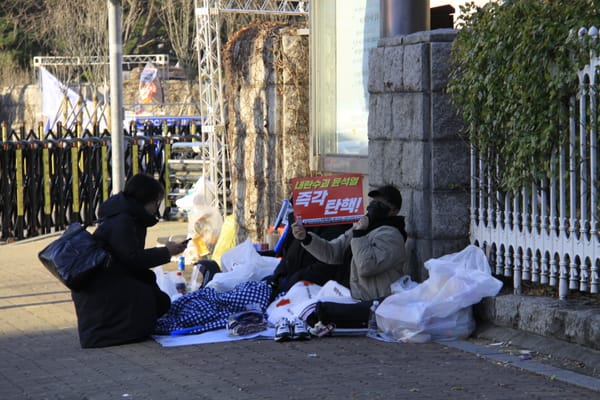Asia (under)covered #1: Bangladesh Protests, Indonesia Elections, and CrazyRichAsians reaction in Asia
Welcome to the first edition of Asia (under)covered. This newsletter highlights important stories from across Asia which don’t get enough attention in US media.
If someone forwarded this to you, please sign up here – it’s free!
Not getting enough attention: Bangladesh Protests
Bangladesh is rarely in the headlines, despite the fact that it has 162 million people (more than France, Germany, or Japan) and has a female Prime Minister, Sheikh Hasina. The country also has important elections this December, elections that will probably be completely ignored by most US media.
The big news there is ongoing protests which have taken place for several weeks. The catalyst was the killing of two children by a speeding bus in the capital, Dhaka. While initial protests focused on road safety, they have since grown into something much bigger – widespread anti-government protests focused on the increasingly authoritarian tendencies of Hasina.
This Reuters piece by Zeba Siddiqui and Ruma Paul does a good job summarizing the protests and their potential impacts for Bangladeshi politics.
Also ignored: Indonesia’s regional elections (and coming Presidential race)
Another country with upcoming elections is Indonesia, the world’s fourth largest country by population. Recent regional races were relatively peaceful and saw several reformist or outsider candidates win, including, in one race, an empty box.
Now attention is shifting to next year’s Presidential race. A big shock came when President Joko “Jokowi” Widodo selected a hardline Muslim leader, Ma'ruf Amin, as his Vice Presidential candidate. Greg Fealy has a great take on this choice for New Mandala. One reason this is shocking is that Jokowi was elected in 2014 as a reformist, and though he is Muslim, he was known more for his love of heavy metal than his religion. That has changed, as he clearly sees the Islamic right as the greatest threat to his Presidency. But what impact will this have in a country that just a few months ago saw suicide bombers attack Churches and has been experiencing rising Islamism?
I’ll be covering the campaign myself and plan to be in Indonesia this coming April. As one of the few remaining vibrant Democracies in Asia, where several countries have seen democratic backsliding in the past few years, including the Philippines, Thailand, Myanmar, and India, Indonesia’s elections will be crucially important. Vice Indonesia is alone among English language media in covering local politics well. Also be sure to follow New Naratif, a new regional publication founded by Kirsten Han and PJ Thim, that will also give the country ample attention.
Finally getting attention: China’s mass incarceration of Uyghur Muslims
After months of silence, the light is finally starting to shine on Xinjiang, a region of western China where the ethnic Uyghur minority has been facing immense repression. It even made the front page of the New York Times, and the United Nations’ Committee on the Elimination of Racial Discrimination expressed deep concern the re-education camps, one of the first official statements by an international body.
This comes after months of stories covering every facet of what’s happening in Xinjiang in mainstream outlets including The Atlantic, Bloomberg and Foreign Policy. Several journalists have been key in bringing this story – which China wants hidden – to the forefront. One of the first journalists to cover the use of technology in Xinjiang was Megha Rajagopalan, who until recently was the China Bureau Chief for Buzzfeed News. Other journalists who did great reporting on this include Lucas Niewenhuis for SupChina and Emily Feng for Financial Times. One journalist who deserves special recognition is Gulchehra Hoja, herself an Uyghur who continues to report for Radio Free Asia despite 20 of her relatives detained in China.
How will China respond? One worrying reaction was the country did not allow Rajagopalan to renew her visa, forcing her to leave China. This, sadly, got little attention, and I fear we’ll see more similar reprisals against foreign journalists covering Xinjiang, Tibet, or any story that Chinese authorities deem unacceptable.
Other important regional news
- Myanmar sentenced two Reuters journalists, Wa Lone and Kyaw Soe Oo, who wrote on the massacres of Royingja last year for seven years, in a stunning setback for journalism. Read the story that got them in so much trouble.
- In India, five human rights activists were arrested on ridiculous charges of being associated with Maoist Naxalites, in what many see as an authoritarian crackdown on dissent ahead of next year’s elections by Prime Minister Narendra Modi. Read this piece by the The Scroll, one of India’s best independent media outlets, to learn more about what’s happening in India and why it’s so worrying.
- Two major airports in Asia were shut down due to climate related events. Kerala’s busiest airport in Kochi only just re-opened after being closed for three weeks due to massive floods that killed hundreds in the state, an event many link to both climate change and unregulated human development. Kansai airport near Osaka, Japan, was also closed after Typhoon Jebi made landfall last week.
And on a lighter note
CrazyRichAsians is beloved by many in the Asian American community for having an all-Asian cast, a first in a mainstream Hollywood film. But in Asia, the reception is not so warm, for a host of reasons, but most notably for how the film generalizes an entire country and ignores diversity. Ironic.
Real Brian Hioe’s review in New Bloom to understand the criticism, and Sangeetha Thanapal critique on how the film erases Singapore’s minorities.
Until next week,
Nithin Coca
Was there a story I missed? Respond to this email or tweet at me and let me know so I can include in next week’s newsletter.
Help spread the word: Please forward this on to anyone you feel might be interested and encourage them to subscribe.



